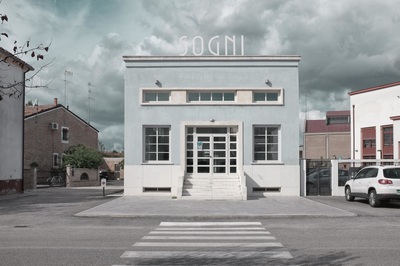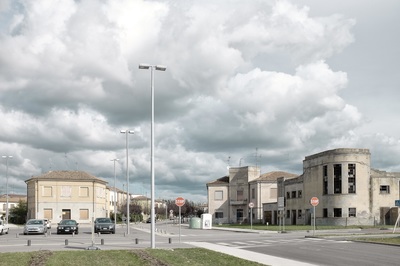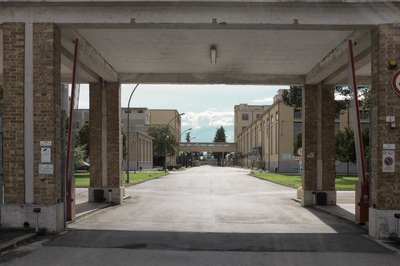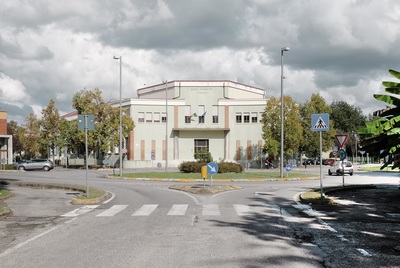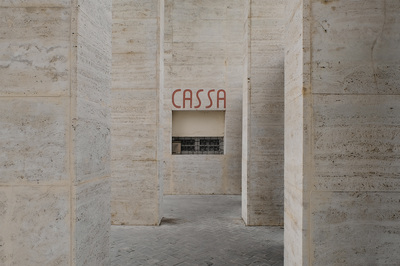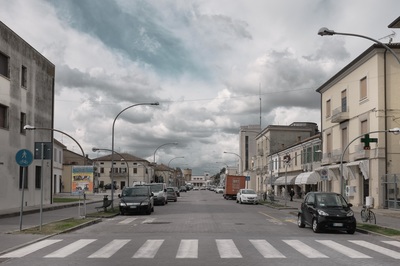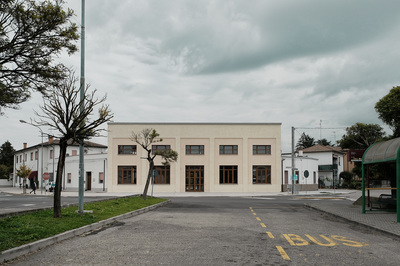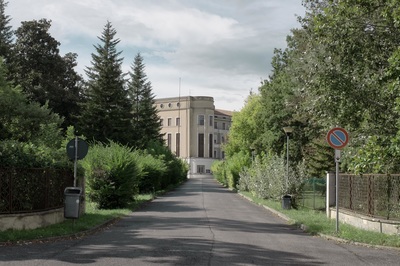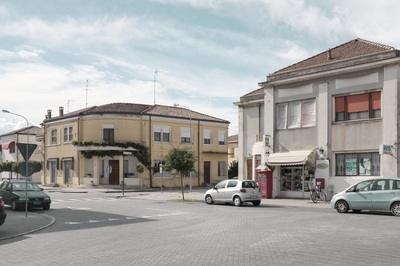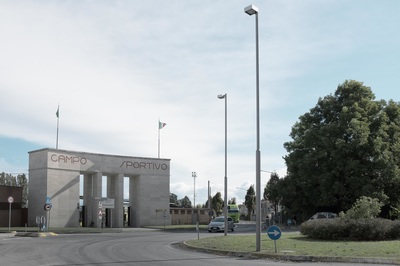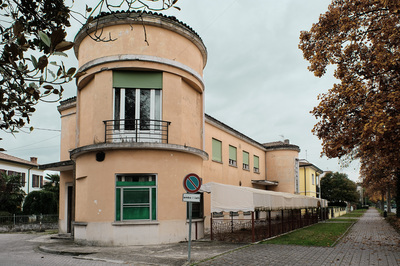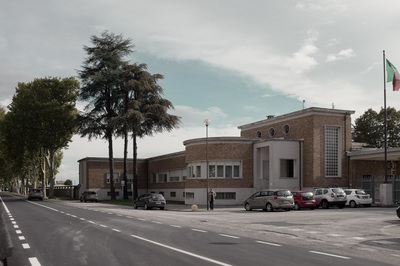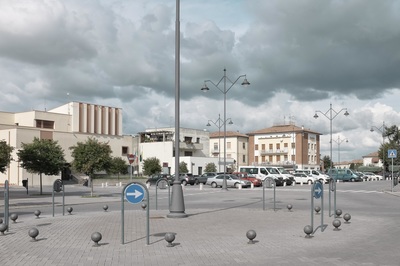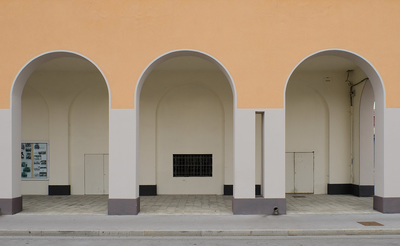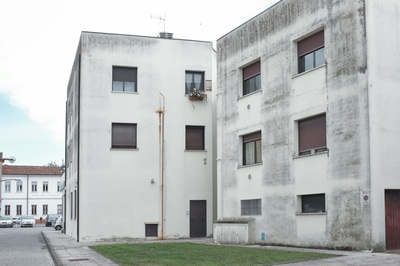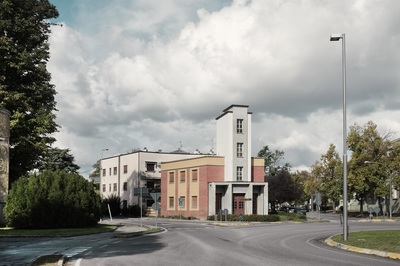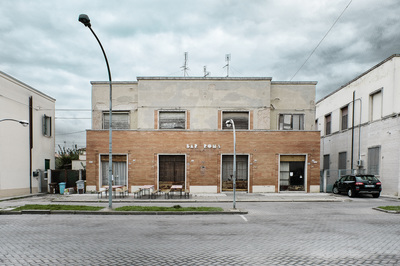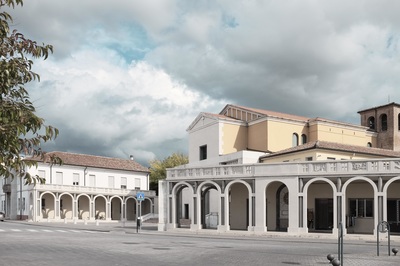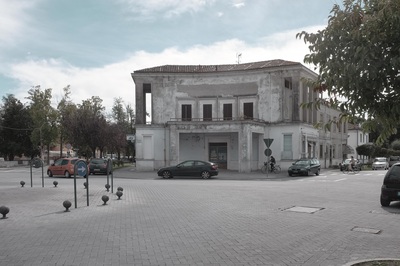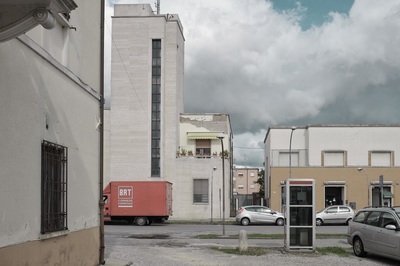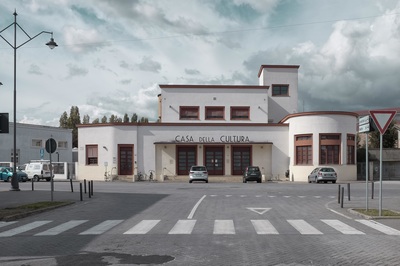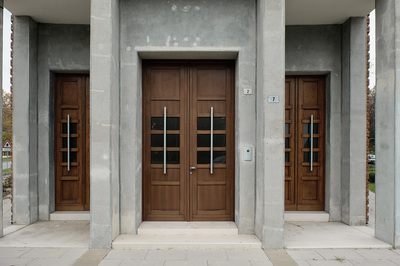| SARA ALBERGHINI |
900
How much a political or ideological tabu can obscure art, beauty and value in general?
There is a little village close to the delta of Po river (Italy), in the middle of a flat countryside of never-ending rice fields, frozen in time and locked at the beginning of the 20th century.
Result of Italian rationalist architectural movement, the city is an open air museum under a low and humid sky, absorbed by big spaces and silence; it is one of rare and very few existing examples of rationalist cities, planned and built from ground, with the scope to be efficient and have evrything needed, with well determined lines, curves and simmetries to call to cleaness straight thought, and again determination itself.
But this city with its own aspect and architecture is also a (too much?) living memory of a dark and shameful period for the nation: like any other Mussolini's product, could it be beautiful or awful, it has been covered by silence, and it struggles to get the right and deserved visibility or attention, just because of the man and political ideology behind itself.
Myself too, born and raised in one of the most socialist regions of Italy (actually not so far from that village), i felt intimately somehow ashamed of appreciating its beauty, and felt guilty when found myself admiring the genius of the founder, along with the values at the basis of such a project.
So, again, how much a political idea or belief, can create blindness even to beauty and art?
Welcome to Tresigallo, "art city" and "città del 900".
There is a little village close to the delta of Po river (Italy), in the middle of a flat countryside of never-ending rice fields, frozen in time and locked at the beginning of the 20th century.
Result of Italian rationalist architectural movement, the city is an open air museum under a low and humid sky, absorbed by big spaces and silence; it is one of rare and very few existing examples of rationalist cities, planned and built from ground, with the scope to be efficient and have evrything needed, with well determined lines, curves and simmetries to call to cleaness straight thought, and again determination itself.
But this city with its own aspect and architecture is also a (too much?) living memory of a dark and shameful period for the nation: like any other Mussolini's product, could it be beautiful or awful, it has been covered by silence, and it struggles to get the right and deserved visibility or attention, just because of the man and political ideology behind itself.
Myself too, born and raised in one of the most socialist regions of Italy (actually not so far from that village), i felt intimately somehow ashamed of appreciating its beauty, and felt guilty when found myself admiring the genius of the founder, along with the values at the basis of such a project.
So, again, how much a political idea or belief, can create blindness even to beauty and art?
Welcome to Tresigallo, "art city" and "città del 900".
© Sara Alberghini - all rights reserved
